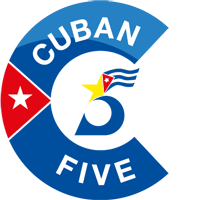|
by Ricardo Alarcón de Quesada
Charge No 3, added in May 1999, against Gerardo Hernández Nordelo, almost eight months after his incarceration is based on a false –more than false, absurd’- premise: the made-up existence of a Cuban Government plan to attack US planes in international airspace. This is equivalent to saying that Cuba wanted a military confrontation with its powerful neighbor. Can anybody believe that such was the intention of a country that had never attacked anyone and, at that moment, was going through the worst economic crisis in its history? What could it win from a war with the United States? The first problem in fabricating something so feverish is that there is plenty of documentation proving exactly the opposite. Apart from denouncing it publicly, Cuba protested through diplomatic notes each violation of its territory. These notes requested Washington to act in order to prevent repetitions of such actions. Simultaneously, we conducted discreet contacts at very high level with the State Department and the White House where we expressed our concern and requested their help to avoid a confrontation. President Fidel Castro personally participated in these efforts. Bill Clinton promised the provocations would not be repeated. In response to our diplomatic notes, the State Department informed us they had started the process to take away the pilot´s license of Jose Basulto –the leader of the group of provocateurs– and asked for additional information, which they received and formally acknowledged in writing. Mr. Basulto, by the way, took his stupidity as far as declaring openly that the deterioration of Cuba’s economy was such that the country had no means to protect its borders, and promised to continue the provocations. February 24, 1996 was a lukewarm and sunny day: a pleasant Saturday when nobody could foresee the tragedy. Along the Malecón many were watching a speedboat competition. Others were busily preparing the penultimate parade of the carnival. Many others were heading to the stadium to enjoy a decisive baseball game in which the team of the capital would be facing its main rival. At the University we had just celebrated the 40th Anniversary of the creation of the Revolutionary Directorate of FEU (Federation of University Students) and at noon, old combatants and students were celebrating the date together along the shore. Thousands of Havana residents were involved in these various activities, carefree, without the hint of an idea that, somewhere beyond the sea, somebody was planning to fly over the city to confirm the foolish hypothesis of our helplessness. Others, across the Florida Channel, did know what was about to happen. According to the information Washington would later hand out to the delegation of the International Civil Aviation Organization (ICAO) that investigated the incident, the State Department had asked an official to be in permanent contact with the Opalocka Airport before the fatidic flight took off. Afterwards, when the National Transportation Safety Board, discussed the issue –because they finally took away Basulto’s license- an official by the name of Houlihan, in charge of monitoring the US radars from the control center in California, testified that a few weeks earlier and the day before February 24, he had been alerted by Washington to watch carefully the flights of Basulto’s group on the 24th, because there was going to be an incident. Somebody knew what might happen, but did nothing to prevent it –as was his duty– nor alerted Cuba. Yes, there was a plan, but it was not a plan of the Cuban Government and much less of Gerardo Hernández Nordelo. Gerardo probably was, as many fans of the Industriales [the baseball team of Cuba´s capital city] waiting to see his team win. He did not know, as nobody else in Cuba did, of the incoming airborne provocation. He could not have guessed that what others were planning would be having so serious consequences for him. He knew nothing of what was going to happen on that day. He could not have imagined that this beautiful early spring afternoon would, years later, be transformed into the infamous slander that would drive him through a real hell. Reprinted from antiterroristas.cu L4C5
0 Comments
Your comment will be posted after it is approved.
Leave a Reply. |
Voices for the FiveArchives
May 2016
|
 RSS Feed
RSS Feed

